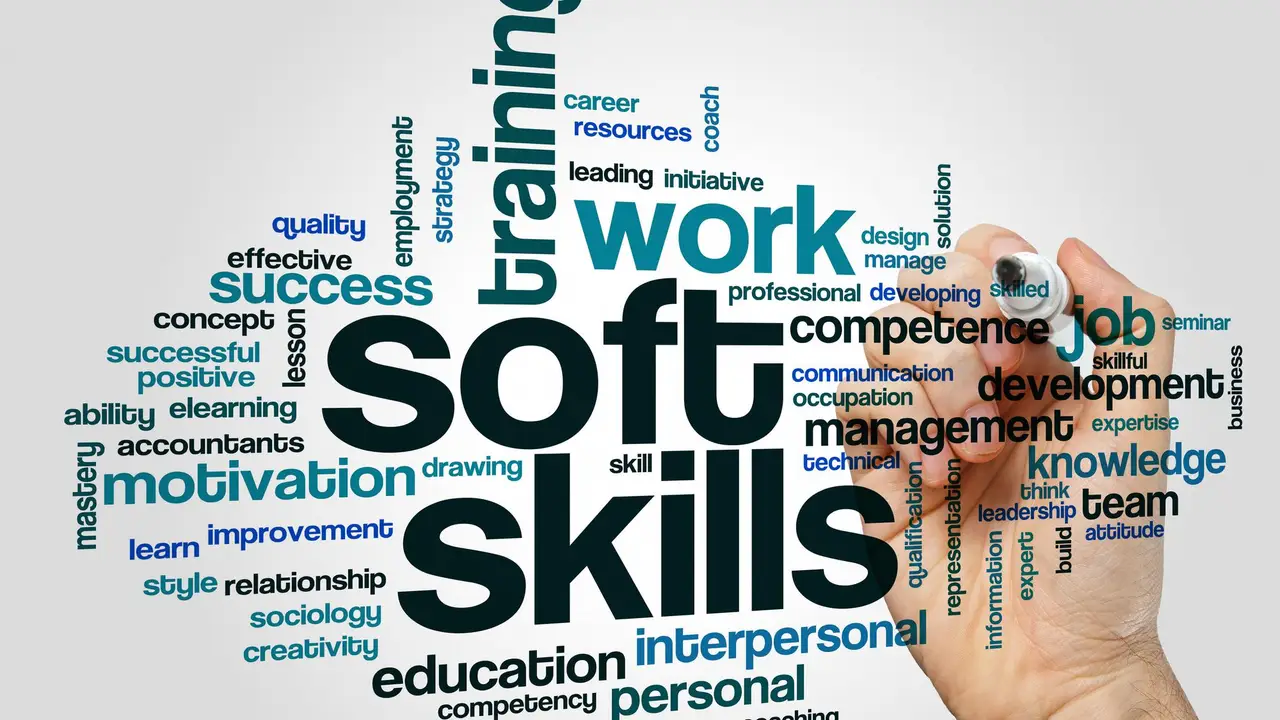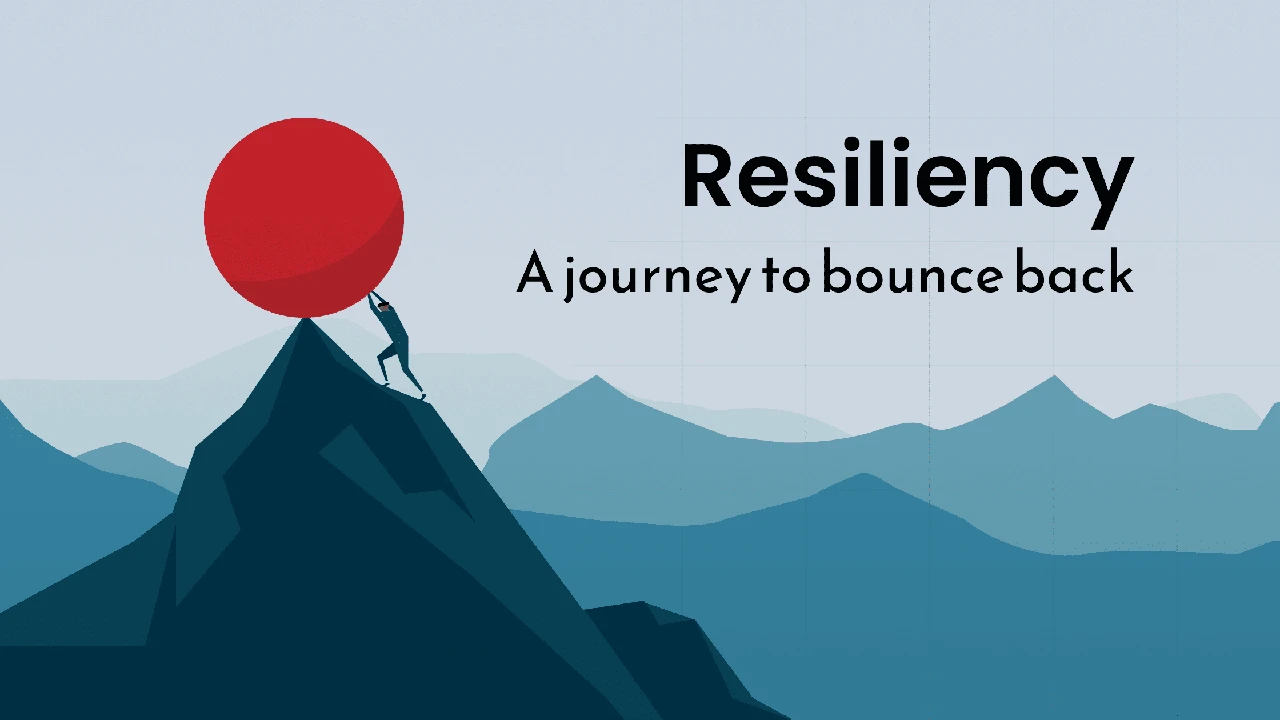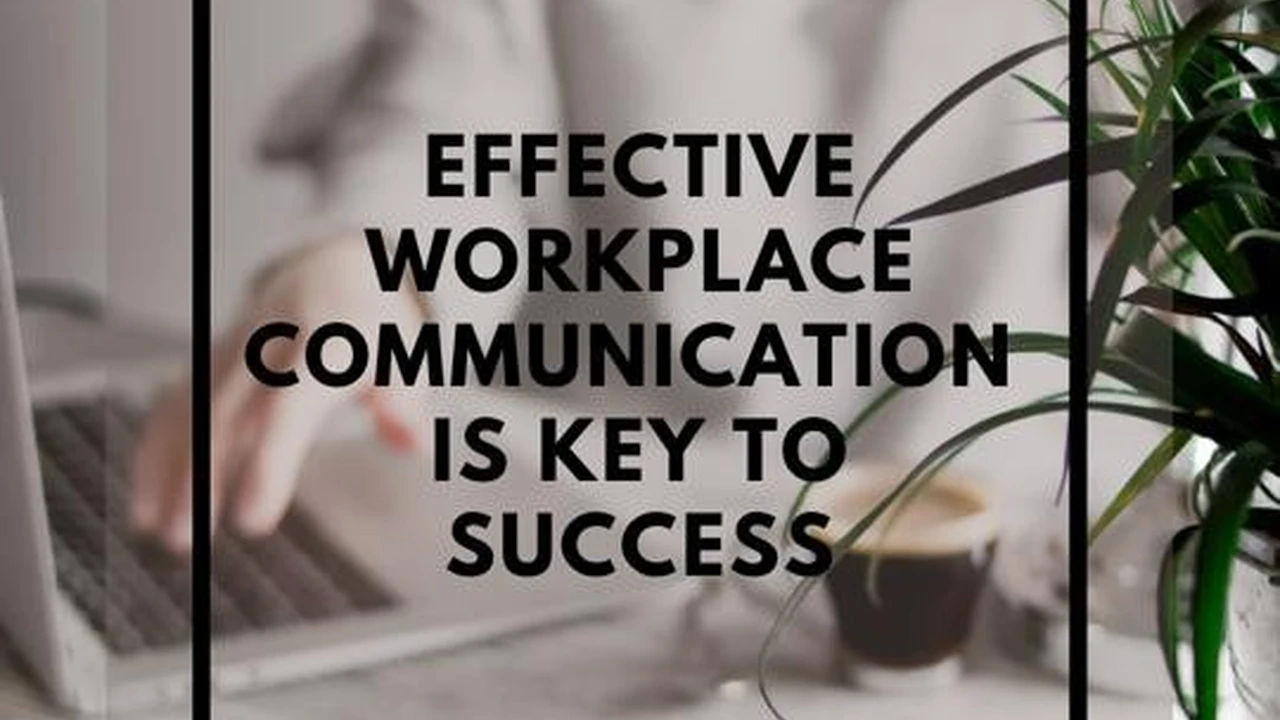7 Essential Soft Skills for Workplace Success
Explore seven crucial soft skills that are vital for effective collaboration and career advancement.

7 Essential Soft Skills for Workplace Success
Hey there! Ever wondered what truly sets apart top performers in any workplace? It's often not just about technical prowess. While hard skills get your foot in the door, it's the soft skills that help you climb the ladder, build strong relationships, and navigate the complex world of professional life. Think of soft skills as your personal superpowers – they make you a better communicator, a more effective team player, and a more adaptable professional. Let's dive into seven absolutely essential soft skills that everyone should cultivate for workplace success, and I'll even throw in some practical tips and tools to help you sharpen them.
Communication Skills Mastering Your Message
Communication is the bedrock of all successful interactions, whether you're talking to your boss, a colleague, or a client. It's not just about speaking; it's about listening, understanding, and conveying your message clearly and effectively. Poor communication can lead to misunderstandings, missed deadlines, and a whole lot of frustration. Good communication, on the other hand, fosters trust, boosts productivity, and creates a more harmonious work environment.
Active Listening The Foundation of Understanding
This is probably the most underrated communication skill. Active listening means fully concentrating on what is being said, rather than just passively hearing the message. It involves paying attention to both verbal and non-verbal cues, asking clarifying questions, and providing feedback to show you've understood. When you actively listen, people feel heard and valued, which builds stronger relationships.
Clear and Concise Expression Getting Your Point Across
Whether you're writing an email, giving a presentation, or participating in a meeting, being able to express your thoughts clearly and concisely is paramount. Avoid jargon where possible, get straight to the point, and structure your message logically. Think about your audience and tailor your communication style to them.
Tools for Better Communication
- Slack: This is a fantastic tool for team communication. It allows for instant messaging, channel-based discussions, and file sharing. Its real-time nature helps in quick decision-making and reduces email clutter. It's great for both small teams and large organizations. Pricing starts with a free tier, then goes up to around $6.67 per user per month for the Pro plan.
- Zoom: For video conferencing, Zoom is a go-to. It offers reliable video and audio quality, screen sharing, and recording features. Essential for remote teams and client meetings. A basic free plan is available, with paid plans starting at about $149.90 per year per license for Pro.
- Grammarly: This AI-powered writing assistant helps you write clearly, concisely, and correctly. It checks for grammar, spelling, punctuation, and even offers style suggestions. It's a lifesaver for emails, reports, and any written communication. There's a free version, and a Premium version costs around $12 per month when billed annually.
Teamwork and Collaboration Working Together Effectively
No one achieves great things alone. The ability to work effectively with others, share ideas, and contribute to a common goal is incredibly valuable. Collaboration isn't just about being friendly; it's about leveraging diverse perspectives, resolving conflicts constructively, and supporting your teammates.
Conflict Resolution Navigating Disagreements
Disagreements are inevitable in any team setting. The key is not to avoid them, but to handle them constructively. This involves listening to all sides, focusing on the problem rather than the person, and finding mutually agreeable solutions. Being able to mediate and de-escalate tense situations is a huge asset.
Empathy and Respect Understanding Others
Understanding and respecting your colleagues' perspectives, even if they differ from your own, is crucial for effective teamwork. Empathy allows you to put yourself in someone else's shoes, which can help in understanding their motivations and challenges. This fosters a more inclusive and supportive team environment.
Tools for Enhanced Collaboration
- Asana: A popular project management tool that helps teams organize, track, and manage their work. You can create tasks, set deadlines, assign responsibilities, and monitor progress. It's excellent for keeping everyone on the same page and ensuring projects run smoothly. A free Basic plan is available, with Premium starting at $10.99 per user per month.
- Google Workspace (formerly G Suite): This suite includes Docs, Sheets, Slides, and Drive, allowing for real-time collaborative editing of documents, spreadsheets, and presentations. It's incredibly convenient for teams working on shared files. Business Starter plans begin at $6 per user per month.
- Miro: An online collaborative whiteboard platform. It's fantastic for brainstorming sessions, mind mapping, and visual project planning, especially for remote teams. It allows multiple users to work on the same board simultaneously. There's a free plan, and Team plans start at $10 per user per month.
Adaptability and Flexibility Embracing Change
The world of work is constantly evolving. New technologies emerge, market demands shift, and organizational structures change. Being adaptable means you can adjust to new situations, learn new skills quickly, and embrace change rather than resisting it. This soft skill is becoming increasingly important in our fast-paced world.
Learning Agility Quick to Learn Quick to Apply
This refers to your ability to learn from experience and apply that learning to new situations. It's about being curious, open to new ideas, and willing to step outside your comfort zone. Companies value employees who can quickly pick up new tools, processes, and knowledge.
Resilience Bouncing Back from Setbacks
Things don't always go as planned. Projects fail, feedback can be tough, and challenges arise. Resilience is the ability to bounce back from setbacks, learn from failures, and maintain a positive attitude even when things are difficult. It's about perseverance and not giving up easily.
Resources for Building Adaptability
- Coursera/edX: These online learning platforms offer a vast array of courses from top universities and companies. They are excellent for picking up new skills, understanding emerging trends, and staying current in your field. Course prices vary, with many free audit options and paid certificates ranging from $39 to several hundred dollars.
- LinkedIn Learning: Offers thousands of video courses taught by industry experts on a wide range of topics, from software skills to leadership and personal development. It's a great resource for continuous learning and skill development. A monthly subscription is around $29.99, or $19.99 per month when billed annually.
- Podcasts like 'HBR IdeaCast' or 'The Tim Ferriss Show': These podcasts often feature interviews with leaders and innovators who discuss adapting to change, learning new things, and building resilience. They offer valuable insights and different perspectives. Free to listen.
Problem Solving and Critical Thinking Finding Solutions
Every job, at some point, involves solving problems. Whether it's a technical glitch, a client complaint, or a strategic challenge, the ability to analyze situations, identify root causes, and come up with effective solutions is highly prized. Critical thinking goes hand-in-hand with problem-solving; it's about evaluating information objectively and making reasoned judgments.
Analytical Thinking Breaking Down Complexities
This involves breaking down complex problems into smaller, more manageable parts. It's about identifying patterns, drawing connections, and understanding the underlying structure of a problem. This systematic approach helps in finding effective solutions.
Decision Making Making Informed Choices
Once you've analyzed a problem, you need to make a decision. This involves weighing pros and cons, considering potential outcomes, and choosing the best course of action. Good decision-makers are often those who can remain calm under pressure and think logically.
Tools and Techniques for Problem Solving
- Mind Mapping Software (e.g., XMind, MindMeister): These tools help you visually organize your thoughts, brainstorm ideas, and break down complex problems. They can be very effective for creative problem-solving and planning. XMind offers a free version, with paid plans starting around $39.99 per year. MindMeister has a free Basic plan, with Personal plans at $4.99 per month.
- SWOT Analysis: A classic strategic planning tool. SWOT stands for Strengths, Weaknesses, Opportunities, and Threats. It helps you analyze a situation from different angles, which can lead to more comprehensive solutions. This is a conceptual tool, no specific software needed, but can be done with any document editor.
- Root Cause Analysis (e.g., 5 Whys): A technique used to explore the cause-and-effect relationships underlying a particular problem. By repeatedly asking the question 'Why?', you can dig deeper into the problem's core. Again, a conceptual tool, often done in team discussions.
Emotional Intelligence Understanding Yourself and Others
Emotional intelligence (EQ) is your ability to understand and manage your own emotions, and to recognize and influence the emotions of others. It's about self-awareness, self-regulation, motivation, empathy, and social skills. High EQ is strongly correlated with leadership potential and overall career success.
Self-Awareness Knowing Your Emotions
This is the foundation of emotional intelligence. It's about understanding your own feelings, strengths, weaknesses, values, and goals. When you're self-aware, you can better understand how your emotions affect your thoughts and behavior.
Social Skills Building Relationships
This involves managing relationships, building networks, and finding common ground. It's about effective communication, conflict resolution, and collaboration. People with strong social skills are often excellent at influencing and inspiring others.
Resources for Developing Emotional Intelligence
- Books like 'Emotional Intelligence' by Daniel Goleman: This seminal book popularized the concept of EQ and provides a deep dive into its components and importance. Available in various formats, typically around $15-20 for a paperback.
- Mindfulness Apps (e.g., Calm, Headspace): These apps can help you develop self-awareness and self-regulation by teaching mindfulness and meditation techniques. They help you observe your thoughts and emotions without judgment. Both offer free trials, with subscriptions typically around $69.99 per year.
- Feedback from Peers and Managers: Actively seeking feedback on your interactions and emotional responses can provide valuable insights into your EQ. Be open to constructive criticism and use it for growth. This is a free, ongoing practice.
Leadership and Influence Guiding and Inspiring
Even if you're not in a management position, leadership skills are incredibly important. This isn't just about giving orders; it's about inspiring others, taking initiative, motivating your team, and guiding projects to successful completion. Influence is the ability to persuade others and gain their support for an idea or action.
Motivation and Inspiration Driving Performance
A good leader knows how to motivate their team, not just through external rewards, but by fostering a sense of purpose and shared vision. Inspiring others means communicating a compelling vision and empowering them to achieve it.
Delegation and Empowerment Trusting Your Team
Effective leaders know when and how to delegate tasks, trusting their team members to take ownership. Empowering others means giving them the autonomy and resources they need to succeed, which not only lightens your load but also develops your team's capabilities.
Tools and Training for Leadership
- Leadership Training Programs (e.g., Dale Carnegie Training): These programs offer structured training in leadership, public speaking, and interpersonal skills. They can be a significant investment but often yield substantial returns. Prices vary widely, from hundreds to thousands of dollars depending on the program.
- Project Management Software (e.g., Trello, Jira): While also collaboration tools, these are essential for leaders to manage projects, track progress, and ensure tasks are completed efficiently. Trello has a free plan, with Business Class starting at $10 per user per month. Jira starts at $7.50 per user per month.
- Books on Leadership (e.g., 'Start With Why' by Simon Sinek, 'The 7 Habits of Highly Effective People' by Stephen Covey): Reading widely on leadership principles and practices can provide a strong theoretical foundation and practical insights. Typically around $10-20 per book.
Time Management and Organization Maximizing Efficiency
In today's fast-paced work environment, managing your time effectively and staying organized are non-negotiable. This soft skill ensures you meet deadlines, prioritize tasks, and maintain a healthy work-life balance. It's about working smarter, not just harder.
Prioritization Focusing on What Matters
Not all tasks are created equal. The ability to identify the most important and urgent tasks and focus your energy on them is crucial. Techniques like the Eisenhower Matrix (Urgent/Important) can be very helpful here.
Goal Setting and Planning Achieving Your Objectives
Setting clear, achievable goals and then creating a realistic plan to reach them is fundamental to effective time management. This involves breaking down large goals into smaller steps and scheduling them appropriately.
Tools for Time Management and Organization
- Todoist: A popular task management app that helps you organize your to-do list, set reminders, and track your progress. It's simple, intuitive, and available across multiple devices. There's a free Starter plan, with Pro at $5 per month.
- Evernote: A versatile note-taking and organization app. You can capture ideas, create checklists, save web pages, and organize everything into notebooks. Great for keeping all your information in one place. A free plan is available, with Personal at $14.99 per month.
- Forest: This unique app helps you stay focused by gamifying productivity. You plant a virtual tree when you start a task, and if you stay focused, the tree grows. If you leave the app, the tree dies. It's a fun way to combat procrastination. It's a one-time purchase of $3.99 on iOS, free with ads on Android.
So there you have it – seven essential soft skills that can truly accelerate your career. Remember, these aren't skills you master once and forget. They require continuous practice, self-reflection, and a willingness to learn and grow. By focusing on these areas, you're not just improving your professional life; you're becoming a more well-rounded and effective individual overall. Keep practicing, keep learning, and watch your career soar!
:max_bytes(150000):strip_icc()/277019-baked-pork-chops-with-cream-of-mushroom-soup-DDMFS-beauty-4x3-BG-7505-5762b731cf30447d9cbbbbbf387beafa.jpg)





